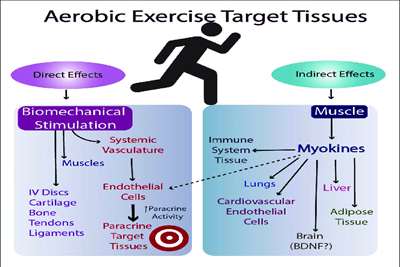The effect of an aerobic exercise course on cardiac tissue apoptosis in rats poisoned with oxygenated water
The effect of an aerobic exercise course on cardiac tissue apoptosis in rats poisoned with oxygenated water

Background and Objectives: Exercise is a powerful physiological stimulus that can directly or indirectly affect the process of cardiac apoptosis by affecting a number of extracellular and intracellular signaling pathways. The aim of this study was to investigate the effect of aerobic exercise on cardiac tissue apoptosis in rats poisoned with oxygenated water.
Methods: In this experimental study, 24 male Wistar rats with weight range (220-200 g) and mean age (8-10) weeks were divided into 3 groups of 8: 1) HC healthy control, 2) TC poisoning control, and 3) AE poisoned aerobic exercise. To induce apoptosis, 9% oxidant, which has a large amount of oxygenated water, was used by inhalation for 3 hours daily. 24 hours after the last exercise, rats were sacrificed and their tissue samples were isolated and kept at -80 ° C. Then, the expression of BAX, caspase 3 and BCL2 genes in cardiac tissue was measured using R T-PCR. Kalmogorov-Smirnov statistical test, one-way analysis of variance with Tukey post hoc test in SPSS software version 22 were used to analyze the findings (p≥0.05).
Results: Exposure to oxygenated water significantly increased BAX (P = 0.001) and caspase 3 (P = 0.002) and significantly decreased BCL2 gene expression (P = 0.001) in cardiac tissue. While aerobic exercise decreased BAX levels (P = 0.001) and caspase 3 (P = 0.001) and increase in BCL2 (P = 0.000) were oxygenated in the heart tissue of rats poisoned with water.
Conclusion: It seems that a course of aerobic exercise with significant changes in the expression of genes involved in oxygenated apoptosis can be used as a complementary therapy, along with other methods, to modulate cardiac tissue apoptosis.











نظر دهید